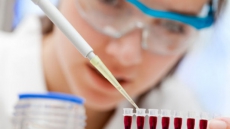In what could lead to new treatment for Parkinson's disease, scientists have identified 24 genetic risk factors involved in the disease, including six that had not been previously identified.
The more variants a person has, the greater the risk, up to three times higher, for developing the disorder in some cases, the study suggested.
"Unraveling the genetic underpinnings of Parkinson's is vital to understanding the multiple mechanisms involved in this complex disease, and hopefully, may one day lead to effective therapies," said Andrew Singleton, a scientist at National Institutes of Health (NIH) in the US.
The researchers collected and combined data from existing genome-wide association studies (GWAS), which allows scientists to find common variants, or subtle differences, in the genetic codes of large groups of individuals.
The combined data included approximately 13,708 Parkinson's disease cases and 95,282 controls, all of European ancestry.
By comparing the genetic regions to sequences on a state-of-the-art gene chip called NeuroX, the researchers confirmed the results in another sample of subjects, including 5,353 patients and 5,551 controls.
The NeuroX gene chip contains the codes of approximately 24,000 common genetic variants thought to be associated with a broad spectrum of neurodegenerative disorders.
Affecting millions of people worldwide, Parkinson's disease is a degenerative disorder that causes movement problems, including trembling of the hands, arms, or legs, stiffness of limbs and trunk, slowed movements and problems with posture.
Over time, patients may have difficulty walking, talking, or completing other simple tasks.
The study appeared in the journal Nature Genetics.





